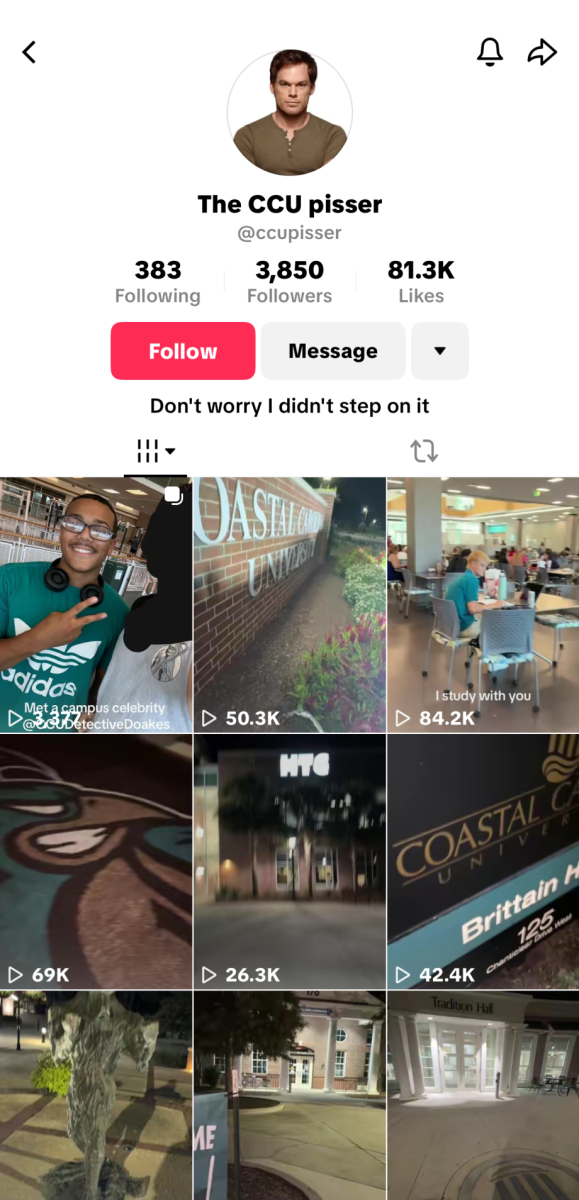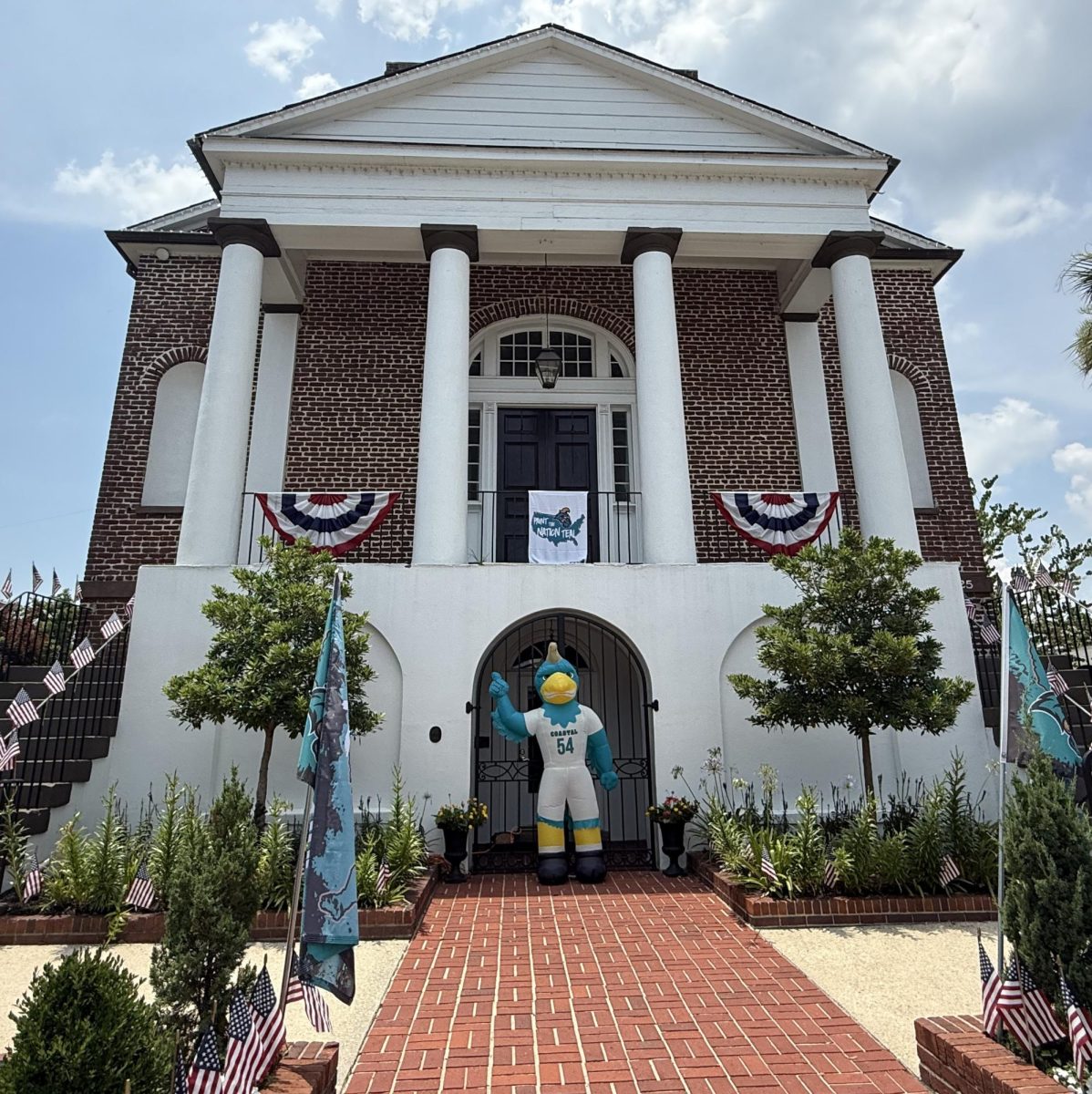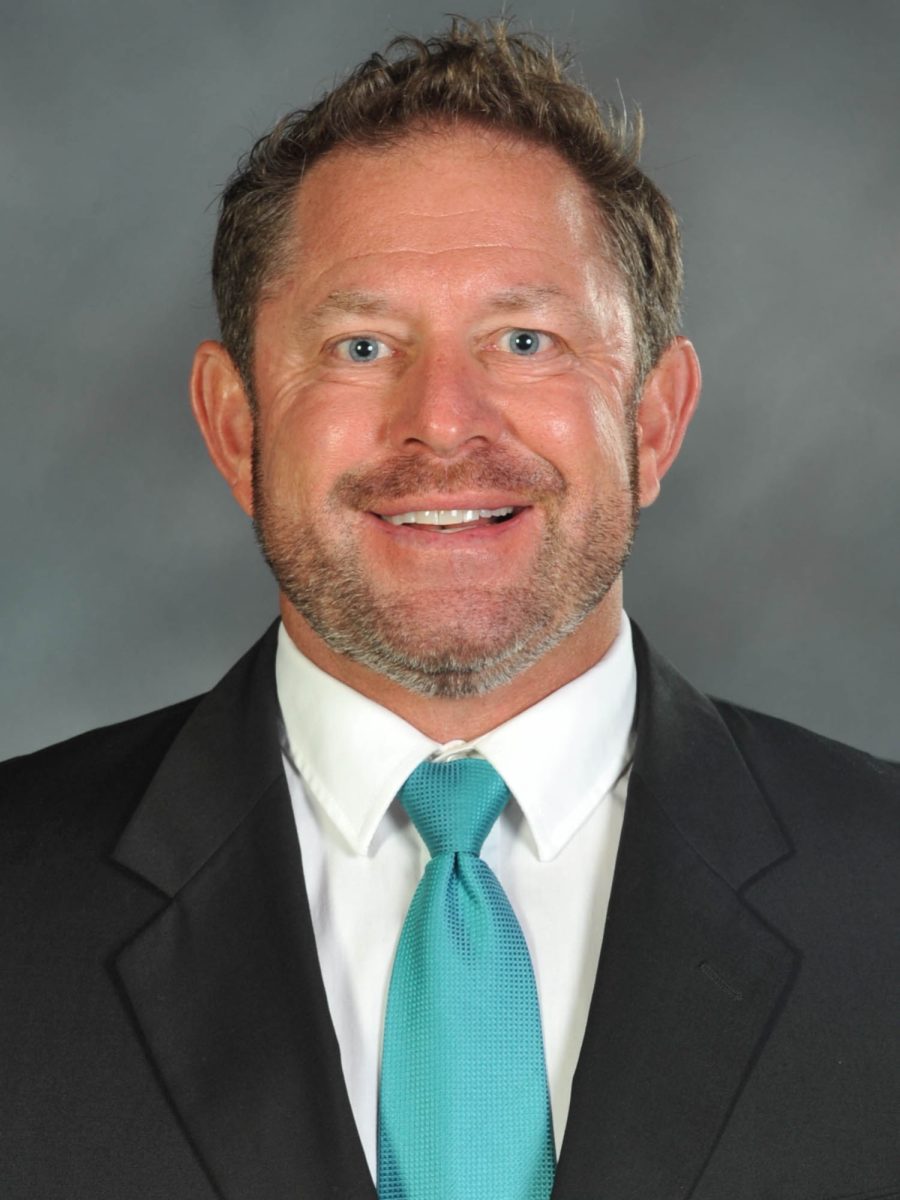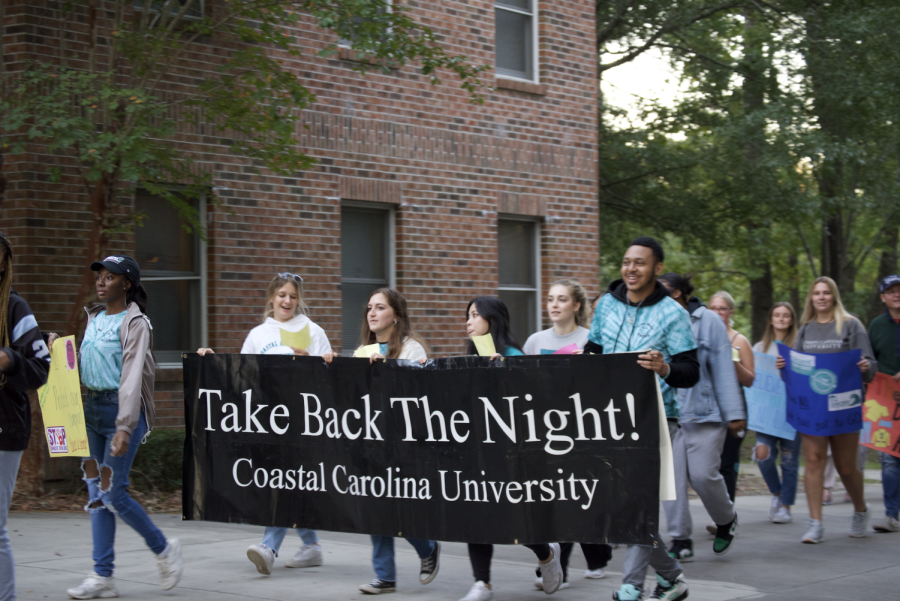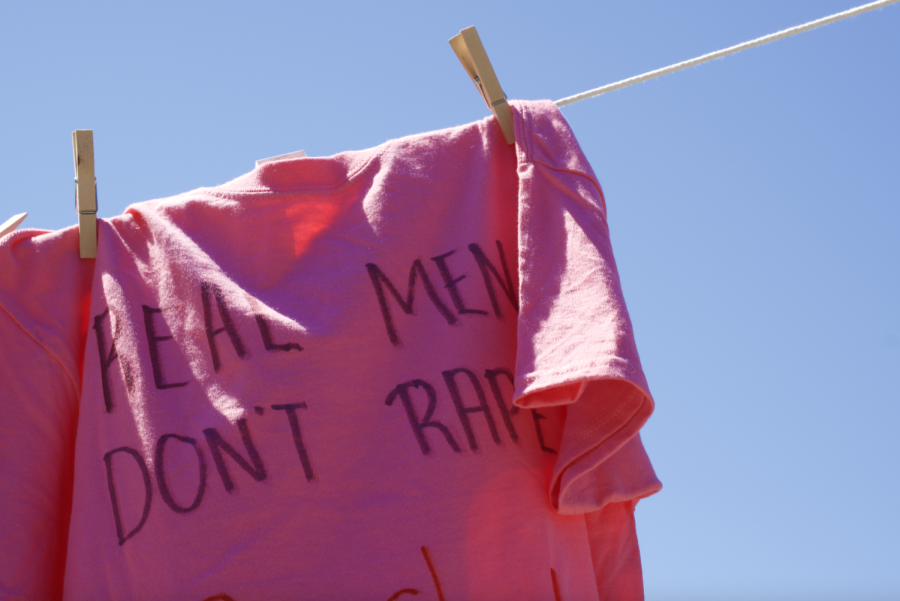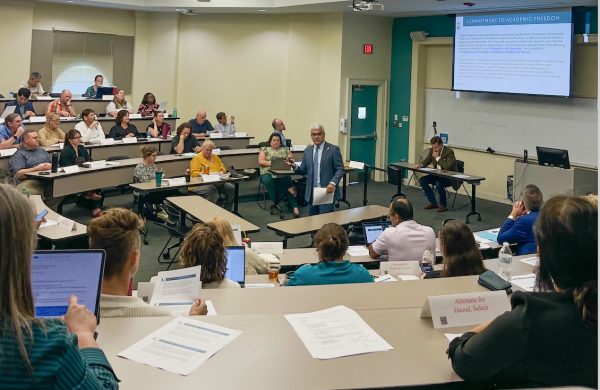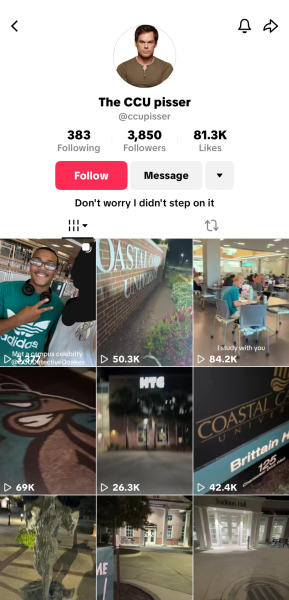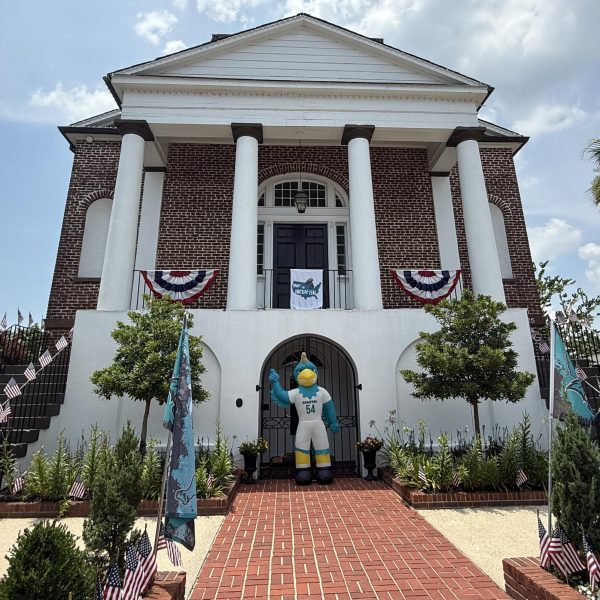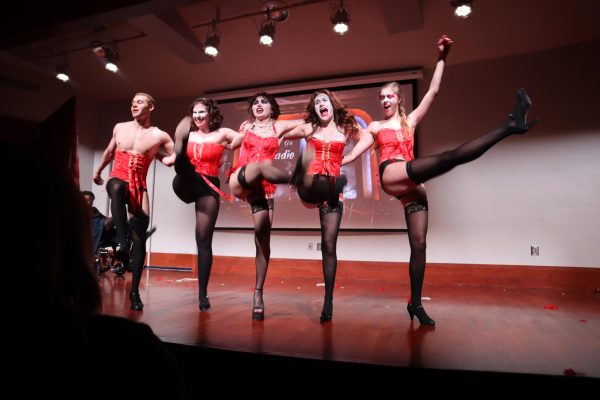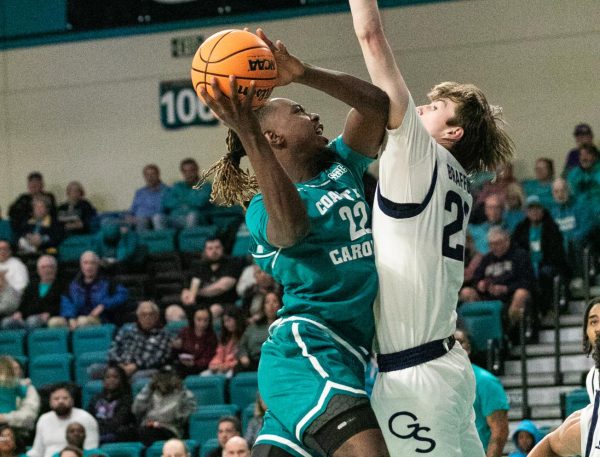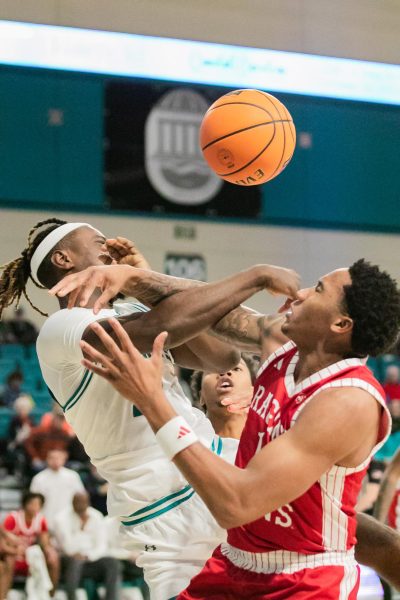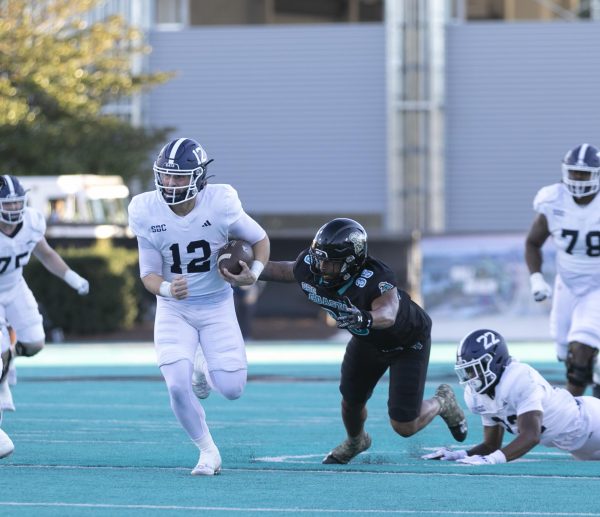Surviving violence: victims share personal stories
The LiveWell staff at Coastal Carolina University holding up a banner during the “Take Back the Night” march on Oct. 4.
Jenna Collins, LiveWell coordinator and survivor of interpersonal violence, had the chance to share her story for the first time to a large audience at the “Take Back the Night” march on Oct. 4.
“It made me feel like I was giving a platform for people who could relate to my story,” Collins said. “That’s something that I definitely wish I had when I was in the middle of it.”
The LiveWell Office is a resource on campus that promotes societal, community, relationship, and individual wellness. According to Bevelyn Mitchell, Coastal Carolina University assistant director for interpersonal violence prevention and services, college students specifically are likely to be sexually assaulted in their first six to eight weeks of college.
Mitchell said South Carolina is ranked eleventh nationally in homicide, murder, suicide and domestic violence, which is why it is important to hold annual events like these.
Collins said there is a wide belief that the University doesn’t seem to care when these things happen. She said CCU is taking steps in the right direction to spread awareness for interpersonal violence and created the confidential advocate position. As a confidential advocate, Mitchell assists students and offers survivors the option to make a formal report or receive help.
CCU Alum Gregory Stephens had a semester-long project about domestic violence where he wrote an open letter to his abuser. He said a week full of events is helpful, but advocacy should continue throughout the year.
“A week of events is great and raising money for these types of events is great,” Stephens said. “But what did we do the other however many weeks of the semester? I always think there’s room for improvement.”
Students gathered in the Lib Jackson Student Union courtyard to “Take Back the Night” before marching around campus. LiveWell interns gave out posters and signs for attendees to show support for survivors.
After the march, Mitchell opened the mic up to any student who wanted to share a personal story with interpersonal violence or words of support for victims.
“You should not feel ashamed about what you’ve gone through. You should not feel guilty about anything,” Stephens said. “We do not have to be spokespeople for this topic.”
Mitchell said interpersonal violence can happen to anyone regardless of gender, sexual orientation, religion, or race. Stephens agreed and said it can be more than physical or sexual aspects of violence, including verbal, mental, and emotional.
“Interpersonal violence is not just a women’s issue, it’s an everyone’s issue,” Mitchell said.
Mitchell said some ways to support survivors are to be an ally, believe them when they share their stories, and be an activist to stand up against domestic violence.
According to Beverly Wilhelm, victim services coordinator at Public Safety, some of the red flags of interpersonal violence can include being possessive of their partner’s time, resources and finances. People experiencing this may not be allowed to hang out with their friends or are tracked through their cellphone.
Another event designed to draw attention to the issue was The Clothesline Project. The Oct. 5 display on Prince Lawn showed bright, neon-colored shirts with comments and poems. The LiveWell office provided t-shirts and markers for students to write messages of support for survivors of interpersonal violence. The t-shirts were then hung up on Wall Bridge, commonly known as “turtle bridge.”
Some of the messages read “real men don’t rape” and “you matter, you are not alone,” along with other supportive words.
CCU partnered up with Horry- Georgetown Technical College (HGTC) to put together the “Light Up the Night” 5k on Oct. 7. The route wrapped around the HGTC and CCU campuses, and local police closed off University Boulevard to keep participants safe.
Wilhelm coordinated the event and said it seemed fitting to pair up with HGTC.
“I know firsthand in working with students that some of their students have been victims of violent crime,” Wilhelm said. “And so they need as much help as we do.”
The 5k was the University’s first time coordinating a victim services race, where all proceeds went to the CCU and HGTC Victim Assistance Fund. Wilhelm said approximately 242 people registered online before the race and about 30 to 40 people walked up to join the cause.
Madison Conway and Taylor Krisciunas, freshmen at CCU and members of the club lacrosse team, saw the event advertised on multiple social media accounts.
“I just like running, and it’s like a good cause,” Conway said. “So why not?”
Conway said speaking up should be normalized because it is not talked about often. She said people need encouragement to get the help they need.
“A lot of people might not know they’re in a bad relationship, and they think it’s love,” Krisciunas said.
Wilhelm said the race was a “big success” and may become an annual event on campus. However, during the march, some students were seen yelling offensive words at the group. Wilhelm said events like these are important on a college campus to raise awareness, stand in solidarity, and not turn a blind eye to victims and survivors.
“I think that people just need to be careful with their words because you don’t ever know when it could be your sister or your mother or your best friend,” Wilhelm said. “We’re marching for our purpose, and we know what that purpose is.”

